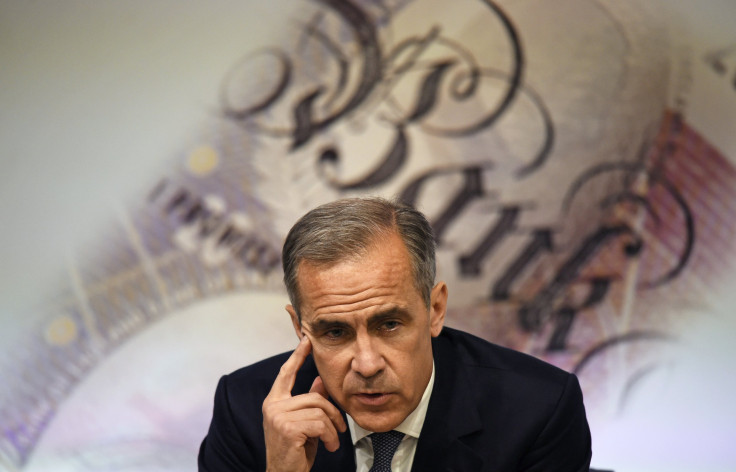As Brexit Risks ‘Begin To Crystallize,’ Bank Of England Eases Rules To Boost Lending

In a bid to lessen the financial fallout of the U.K.’s decision to leave the European Union, the Bank of England (BoE) on Tuesday eased lending rules for British banks. The move, which the bank’s Financial Policy Committee (FPC) said could potentially free up 150 billion pounds ($197 billion) for lending, comes even as the pound sterling, hit by lack of investor confidence, tumbled to a new 31-year-low against the dollar.
“This action reinforces the FPC’s expectation that all elements of the substantial capital and liquidity buffers that have been built up by banks are able to be drawn on, as necessary,” the BoE said in its first Financial Stability Report published since the June 23 referendum.
Under the new measure outlined in the report, the so-called countercyclical capital buffer — essentially a rainy day fund that provides an extra layer of protection in the form of higher capital requirements against future loan losses — would be held at zero until June next year. This, the BoE said, would reduce banks’ capital requirements by 5.7 billion pounds.
Carney: “The Bank has a clear plan. We are rapidly putting its main elements in place. And it is working”
— Bank of England (@bankofengland) July 5, 2016
“This means that three quarters of banks, accounting for 90 percent of the stock of UK economy lending, will, with immediate effect, have greater flexibility to maintain their supply of credit to the real economy. Other banks will no longer see their regulatory capital buffers increase over the next nine months, increasing their capacity to lend to UK households and businesses too,” the BoE said in its report.
Since the June 23 referendum, the U.K.’s economic outlook has become clouded as the uncertainty about the country’s fate in a post-Brexit world continues to spook investors. Over the past week, two major ratings agencies have downgraded the U.K.’s credit rating, the pound has hit record-low levels not seen in over three decades, and investors have begun withdrawing millions of pounds from the country’s real estate market. Last week, U.K.’s treasury chief George Osborne was also forced to abandon a key economic goal outlined earlier this year — to return the government's finances to a surplus by 2020.
On Tuesday, the pound fell 1.8 percent to $1.3113, dropping below the $1.3118 level it hit last week.
“At its March meeting, the FPC judged that ‘the risks around the referendum [were] the most significant near-term domestic risks to financial stability,’” BoE Governor Mark Carney said at a press conference in London Tuesday. “Some of those risks have begun to crystallize.”
Following the release of the report, Osborne, who recently revealed his plan to cut corporate tax in the U.K. to less than 15 percent in a bid to lure businesses, said that the government would meet major British banks to discuss Brexit risks later Tuesday.
© Copyright IBTimes 2024. All rights reserved.





















